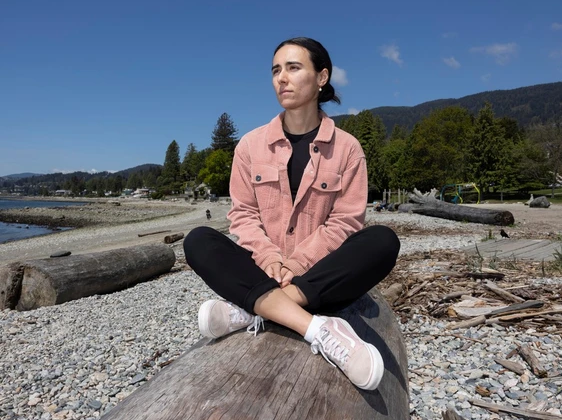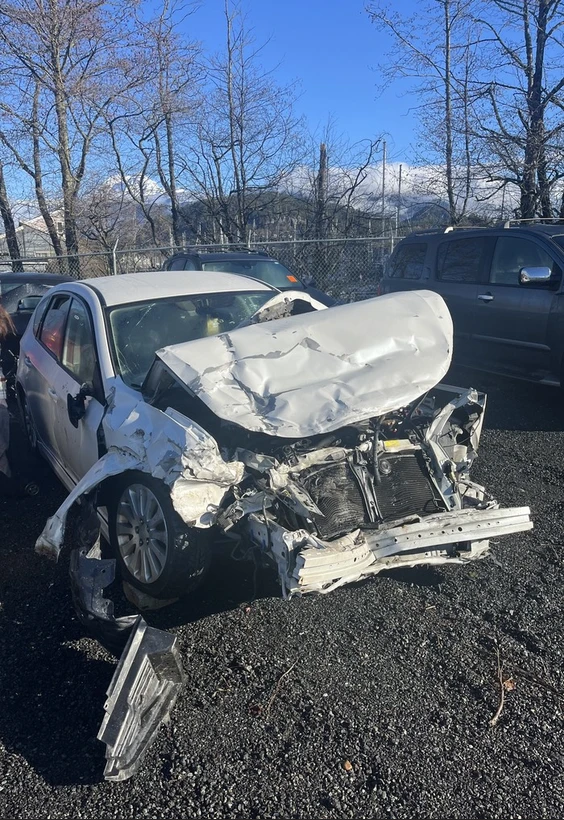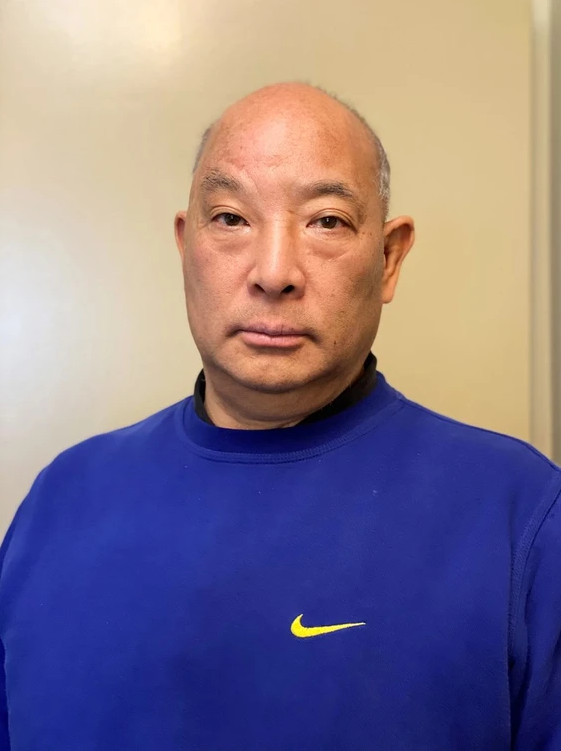B.C. drivers have enjoyed premium cuts thanks to ICBC’s no-fault insurance system. But those savings have come at a high price for many people who have suffered lasting injuries, say victims and advocates.
As seen in Vancouver Sun by Susan Lazaruk, 13th May 2024.

A crash on the Sea to Sky Highway in February totalled a young Squamish couple’s car, dashed their plans for their first tropical vacation together, and left them injured and worried about taking care of themselves and paying their mortgage.
Throughout the first few days and weeks of recovery, Sarah Wheatley and her partner, Denis Courchesne, felt unsupported by ICBC under its no-fault system, she said.
ICBC introduced no-fault insurance, which the province calls “enhanced care,” in 2021 to reduce spiralling legal costs that it said were driving insurance premiums higher each year. People injured since then are learning how radically different the no-fault system is compared with when they could have sued for damages.
“Your life has been turned upside down,” said Wheatley. “I had no idea there was this no-fault policy. A lot of people don’t know about this unless they’re hurt in an accident.”
The crash happened on Feb. 12, soon after Wheatley, Courchesne and her sister left Squamish for the airport. They were driving south on Highway 99 when a Ford 350 flat-bed pickup attempting a U-turn from the shoulder stopped in their lane.
Courchesne hit the brakes but they crashed into the truck. The front section of their mid-sized sedan was crumpled up to the windshield. It took first responders 20 minutes to extract Wheatley’s sister, Kieran, because her back was broken. Instead of lying on a beach in Mexico, all three ended up in hospital.

The driver and passenger in the truck, working as subcontractors for a pipeline project, were unhurt and fully at fault, said Wheatley. She discovered after calls to dozens of law firms that she wouldn’t be able to sue except in the unlikely case where the driver was convicted of a criminal offence.
Wheatley said her experience with ICBC was frustrating from the start. She was assigned four different adjusters in the first six weeks. She said they denied her claim for help with chores such as cooking and cleaning, and she had to rely on help from friends.
“I couldn’t breathe without pain and I couldn’t lift anything. And they take so long to get back to you. It seems to me to be a tactic, that they’re hoping you’ll just give up. It’s a huge power imbalance because they have all the power,” she said.
The couple had to pay $1,000 upfront for car rental and for a couple of counselling appointments. Wheatley estimated they were out of pocket $1,600 in the first two months and had to stop booking treatments due to lack of funds.
ICBC eventually reimbursed most of the costs but she estimates she’s out $500 in fees for treatments beyond those covered by the insurer.
Wheatley said they also had to find out for themselves what they were allowed to claim, such as travel costs to and from treatment sessions
“Don’t make us go dig for it. They’re not upfront,” she said. “People are going through the worst moment of their life and they’re making them wait. I would just prefer a settlement so I could have ownership of my own care.”

Calls for an independent advocacy group
Wheatley is among the about 78,000 people in B.C. injured by or in cars every year, according to the B.C. injury research and prevention unit at B.C. Children’s Hospital.
Those injured, whether responsible for the crash or not, can apply to ICBC for medical treatment, wage-loss coverage and other compensation to help them carry out daily activities.
But under no-fault insurance, victims of a crash don’t have the right to sue for damages and aren’t eligible for damages for “pain and suffering.” Such damages are common in lawsuits.
It was costly, drawn-out lawsuits that resulted in $1 billion in yearly losses for ICBC, a situation then-attorney general David Eby described as a “dumpster fire.”
The no-fault model was expected to cut premiums by 20 per cent, or about $400 a year on average, for drivers. ICBC spokesman Greg Harper said premiums have fallen 28 per cent, about $496 on average.
It’s difficult to compare what ICBC pays per year in damages under the current and previous models because of the estimated $7 billion in outstanding claims from the old tort system, he said. But premiums have dropped because the amount drivers are charged this year is based on what ICBC expects to pay for future claims, an amount that will keep dropping over the years as the outstanding claims make their way through the courts or are settled, he added.
The premium cuts for drivers have come at a high price for people who have suffered lasting injuries, according to advocates like Geoff Sing of the B.C. Brain Injury Association.
“What innocent crash victims are dealing with, it’s abysmal,” said Sing, whose brain was injured in a crash 30 years ago. “We’re hearing crash victims are on their own and trying to navigate a complicated system and not getting the support they need.
“What we are seeing too much of are rejections and confrontations, and there’s a mistrust of the adjusters,” said Sing.

B.C. needs an independent advocacy group made up of paid staff rather than volunteers, to help the injured who may have no knowledge of their rights and have to go up against ICBC employees familiar with the process and tasked with reducing the insurer’s losses, said Sing.
“ICBC is in a much better financial position now and people are happy because we got rid of those ambulance-chasing lawyers,” said Sing. “People are happy with their rebate, unless you are a crash victim and you see how powerful and difficult (ICBC) is.”
Perry Strauss, head of ICBC’s enhanced care system, said the new system allows claimants to get medical treatment without a doctor’s referral for 12 weeks. He said that’s an improvement over the previous system because the injured often had to wait years for a settlement or for their case to be decided by the courts, which meant those without extended health benefits had to pay for treatments in the meantime.
‘People want to get back to living’
An ICBC survey included in its last annual report shows that about one-quarter of those injured aren’t satisfied with the insurer’s claim process, which amounts to almost 20,000 individuals a year.
Sing said calls to his association from people looking for help with ICBC claims make up about 20 per cent of all calls, up from “nothing” before no-fault.
The non-profit association, which is run by volunteers, doesn’t have the resources to provide full advocacy for crash victims, leaving them “at the whim of the adjusters, and they’re adjusters who have no knowledge of their brain injury,” he said.
Sing sits on ICBC’s disability advisory group but he said he sees no meaningful changes because “it’s a black and white bureaucratic process. If you don’t tick off this or that box, you are denied help.”
He sees how difficult it is for the injured, particularly those without a family doctor, to chase treatment benefits while they should be focused on their recovery.
Getting a claim settled “is not winning the lottery. For what you lose, a settlement never makes up for it. No one wants this. People want to get back to living life,” said Sing. “Those crash victims who are on a long-term recovery, they’re the greatest challenges.”
Under the no-fault model, the injured can access “pre-approved” appointments for treatments in acupuncture, chiropractic, kinesiology, massage therapy, physiotherapy, counselling and psychology during the first 12 weeks after the crash.
Following those first three months, ICBC works with the injured claimant’s doctor or medical practitioner to help them get services and care benefits that will help them recover as much as possible, said ICBC spokesman Harper.
But Postmedia News has heard from several frustrated crash victims who say adjusters have overridden doctors’ recommendations for treatments for injuries that continue longer than three months.
At some point, ICBC may cut off treatment altogether, as Wesley Chadwick found out when his benefits all but ended 21 months after he was struck by a drunk driver.
His adjuster denied him four more sessions recommended by his chiropractor, telling him he had “plateaued” in his recovery and that ICBC’s “clinical advisory group” found “best practice evidence” doesn’t “support prolonged treatment over the long-term” for chronic pain management, according to an email he received.
“Evidence supports reducing the focus on pain and instead focusing on self-management and ensuring promotion of activity and function,” the adjuster said.
She did approve him seeing an occupational therapist to help “improve engagement with work” and provide information on how to pace himself and “help manage your pain,” the email said.
Chadwick said his injuries continue to affect his ability to do his job and work around the house, so he will continue to pay for his own treatment.
“Our association is overwhelmed by the number of people calling in and expressing frustrations in dealing with ICBC,” said Michael Elliott, president of the Trial Lawyers Association, which includes the personal injury lawyers who represented those who sued ICBC for damages under the old system.
ICBC said injured people seeking benefits aren’t forbidden from hiring a lawyer.
But Elliott said legal fees make it cost-prohibitive for an injured person to hire a lawyer when the amounts involved in most cases aren’t large enough to cover the legal fees. Those with serious or lasting injuries have to have any future expenses approved by an adjuster each time they’re incurred for the rest of their lives, he said.
Wheatley said it seems unfair that there is no recognition of or compensation for accident victims’ continuing pain and loss of enjoyment. She and her sister, who both competed multiple times for Canada in trampoline gymnastics years ago, and Courchesne, a highly ranked competitive mountain-bike racer, are “high level athletes” who used to frequently hike and go on backcountry ski trips, said Wheatley.
“We aren’t going to be returned to our pre-accident condition,” she said. “What the adjuster said is we will get treatment, ‘Until your function is restored.’ The only ones who lose in this situation are the victims.”
Navigating a complex system
A B.C. Supreme Court justice found in a recent ruling that ICBC adjusters withheld part of a woman’s award for future care that was ordered by the court under the old tort system. The court found ICBC adjusters repeatedly denied her payment for treatments that she was entitled to and ordered ICBC to give her the money in a lump sum. The judge said ICBC exhibited “egregious behaviour” and, in a strongly worded ruling, said ICBC would only act honourably when a lawyer or the courts were involved.
In a recent decision released by the province’s civil resolution tribunal, where claimants can appeal ICBC’s decisions, the adjudicator said adjusters “mischaracterized her accident as mild” and that led to her being denied appropriate treatment. According to the ruling, an adjuster acted “contrary to ICBC’s enhanced care guiding principles” and in “at least one” email their tone was “unprofessional, accusatory and hostile toward the claimant.”
Elliott said while health-care providers who have ICBC clients are reluctant to speak out publicly, a 2023 internal survey conducted by the Canadian Occupational Therapists Association in B.C. showed about three-quarters were dissatisfied with the enhanced care system and 49 per cent said enhanced care was worse than the old system, while two per cent said it was better. And 74 per cent said ICBC staff more than once injected their opinions into a treatment plan.
Occupational therapists, who are responsible for drawing up treatment plans, also reported that ICBC staff denied treatment plans recommended by the patient’s doctor, physiotherapist, chiropractor or psychologist.
There are escalating avenues of appeal for those unhappy with an adjuster’s decision, the last of which is the civil resolution tribunal, where applicants are normally self-represented. Of the two dozen or so cases since 2020 where claimants appealed to the tribunal after benefits were denied, all but a handful were dismissed.
Typically, applicants seem ill-equipped to prove their need for continued treatment. In one recent case, an adjudicator acknowledged an accident “undisputedly” caused the applicant’s back, shoulder and neck injuries and that he suffered stiffness, decreased range of motion and continuing pain, but said he “has not submitted sufficient medical evidence” to satisfy the relevant section of the Enhanced Accident Benefits Act.
ICBC needed a treatment plan from a physio or registered massage therapist and the claimant “made it clear he was frustrated that ICBC wouldn’t facilitate him getting those plans,” said the adjudicator. “He bears the onus of proving that additional physio or massage treatments will facilitate his recovery or address a decline in his function and I find the evidence does not do so.”

‘More like the WorkSafeBC model’
The old system wasn’t sustainable because of high legal costs, said economics professor Werner Antweiler of UBC’s Sauder School of Business.
The enhanced care system is more like the WorkSafeBC model, where “having a government guarantee that people are going to be looked after medically throughout their lives will be preferred over a one-time settlement that may or may not be enough for the rest of their lives,” he said.
“It’s about getting the medical treatment they need, it’s not about the money. There are some cases that fall through the cracks and there always are and always will be no matter what system you’re looking at.”
He agreed individuals would benefit from an advocate.
“People who are not necessarily lawyers but people who help them navigate the system. What form that takes — I think we need to have a robust discussion about that.”
Antweiler said ICBC claims adjusters may need to be better trained as part of a review of the system now that it’s been in use for three years.
The Conservative Party of B.C. in its election platform and the Trial Lawyers Association of B.C. have called for the province to reinstate the right to sue for serious injuries.
Harper said ICBC has no plans to do that.

